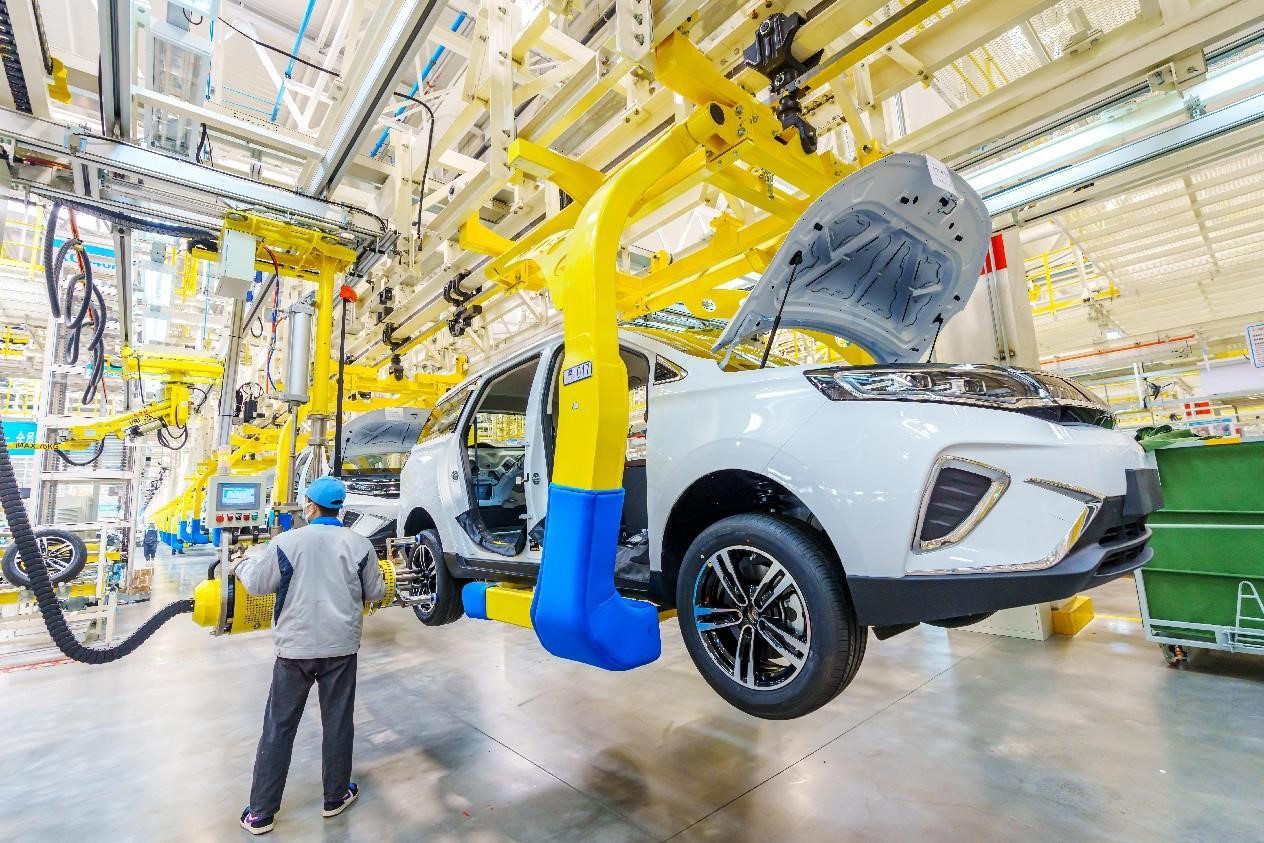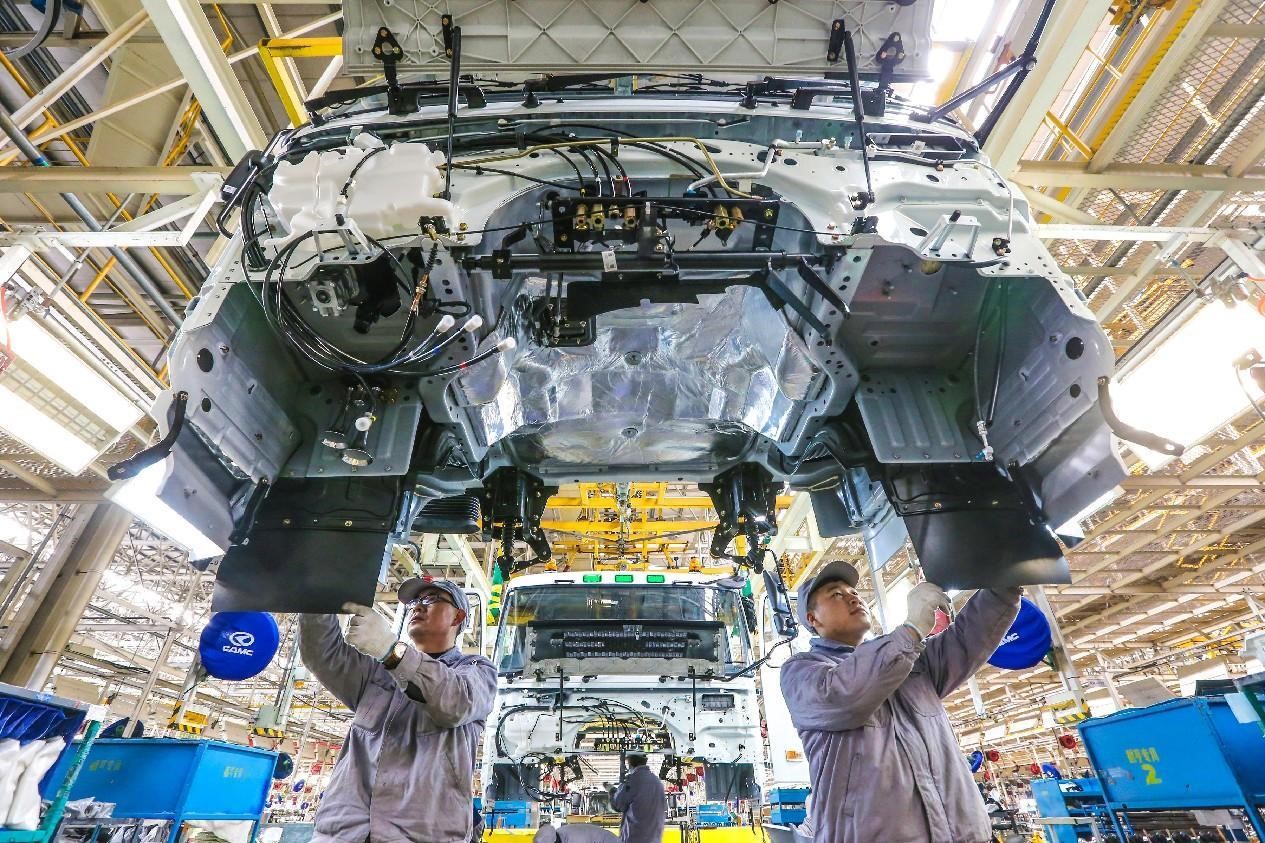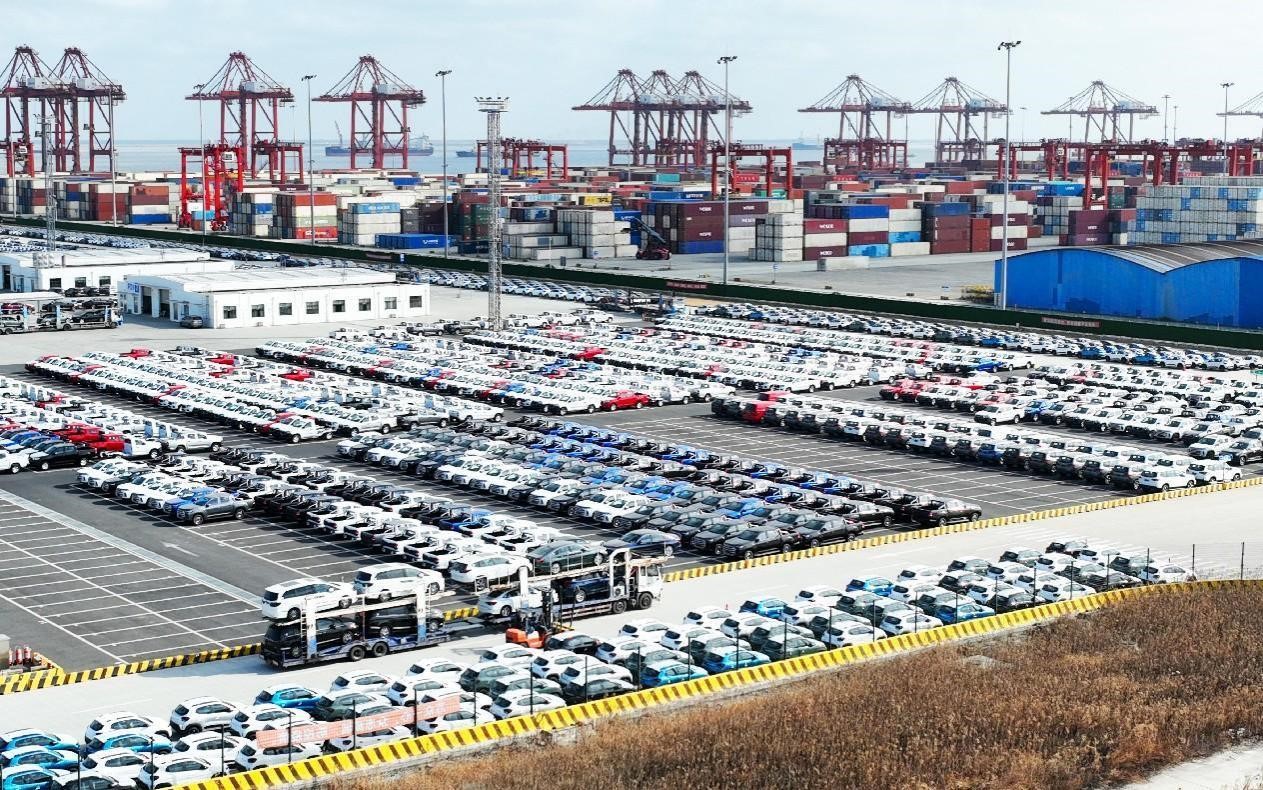China's auto production, sales rank first globally for 14 consecutive years
China's auto production exceed 27 million units, up 3.4 percent year on year, while sales increased 2.1 percent from a year ago to 26.86 million units, according to recent data by the China Association of Automobile Manufacturers (CAAM).

Workers of Chinese carmaker Dayun Auto assemble new energy vehicles in a workshop in Yuncheng, north China's Shanxi province, Dec. 8, 2022. (People's Daily Online/Yan Xin)
The Chinese auto industry maintained the momentum for recovery and demonstrated strong resilience, the association said.
China's auto production and sales have ranked first in the world for 14 consecutive years, and those of new-energy vehicles (NEVs) topped the global market for an eighth year in a row.
"Despite the structural shortage of chips, the high price of power batteries and other impacts from negative factors, the Chinese auto market bucked the trend and achieved positive growth thanks to policies in stabilizing growth and promoting consumption, as well as the efforts made by all market players. The industry demonstrated strong resilience," said Fu Bingfeng, executive vice-president of the CAAM.
Over 20 million passenger vehicles have been produced and sold in China annually for the past eight years, as a result of the country's car-purchase tax cut and the rapid growth of NEVs, Fu noted.
The NEV market maintained exponential growth in 2022, witnessing the production of nearly 7.06 million units and sales of nearly 6.89 units, surging 96.9 percent and 93.4 percent year on year, respectively, Fu told People's Daily.

Workers of Hanma Technology Group assemble new energy heavy trucks in Ma'anshan, east China's Anhui province, Jan. 10, 2023. (People's Daily Online/Wang Wensheng)
The market share of NEVs in China's auto market reached 25.6 percent in 2022, 12.1 percentage points higher from a year ago, Fu said, adding that the Chinese NEV sector has gradually entered a new phase of market-based development and growth.
With emerging NEV startups and intensified efforts of auto joint ventures and mainstream Chinese automakers to develop NEVs, the competition is getting increasingly intense.
This year, China will work vigorously to boost market confidence, implementing a strategy to expand domestic demand and further activate market entities and consumption vitality.
It is expected that the Chinese auto market will grow about 3 percent in 2023 and keep the momentum for stable development, Fu said.
On Jan. 12, 1,840 vehicles manufactured by Chinese automaker Chery left Wuhu, east China's Anhui province for Shanghai, where they were loaded and shipped to Mexico two days later.
This was the second shipment of Chery's automobiles to Mexico this year, and another batch of 3,281 units is scheduled to be shipped to Türkiye and other markets on Jan. 21, the Chinese New Year's Eve, according to Chery spokesman Jin Yibo.
Jin said the company is currently shipping nearly 5,000 vehicles to Mexico each month, and its exports exceeded 450,000 units last year, up 67.7 percent from 2021.
On Jan. 10, the first 150 JH6 tractor trucks to be exported to Indonesia this year were loaded at the port of Lianyungang in east China's Jiangsu province.
The carmaker, China's FAW Jiefang based in Changchun, northeast China's Jilin province, has constantly expanded its global business and witnessed the rapid growth of sales in major markets, including Indonesia. It exported 22,000 vehicles last year, up 47 percent year on year.
Chinese electric vehicle giant BYD also made remarkable achievements overseas, entering markets including the Netherlands, Japan, Germany, Sweden, Thailand, India and Norway.
So far, BYD has established some 30 industrial parks around the world, and its NEVs are sold in more than 400 cities overseas in over 70 countries and regions. The company exported nearly 56,000 NEVs in 2022, which more than tripled the figure from a year ago.
Grasping the opportunities in the NEV market and making breakthroughs overseas was the biggest highlight of China's auto exports in 2022.

Automobiles are about to be shipped to overseas markets at Taicang port, east China's Jiangsu province, Jan. 10, 2023. (People's Daily Online/Ji Haixin)
According to the latest statistics released by the CAAM, China exported 3.11 million vehicles in 2022, up 54.4 percent year on year, significantly encouraging the industry's overall growth. In particular, 679,000 of them were NEVs, up 120 percent year-on-year.
Since China's annual auto exports exceeded 2 million units for the first time in 2021, the sector has embraced leapfrog development, said Fu.
He attributed the outstanding performance to the short supply overseas and the significantly improved competitiveness of Chinese carmakers, especially their advantages in battery, motor, electric control system and autopilot technology.
Statistics indicated growths in both the volume and price of exported Chinese vehicles since 2022, with an average price of $18,900. The average price of pure electric vehicles was $25,800 during the same period.
Experts said Chinese auto exports are expected to step onto a higher level as long as China grasps the opportunities brought about by NEVs and intelligent connected vehicles, and improves its capability in the independent development of industrial and supply chains.
Photos
Related Stories
- Shandong to issue vouchers for automobile consumption
- China's auto exports surge 54.4 pct in 2022
- China's auto sales up 2.1 pct in 2022
- Interview: Rolls-Royce expects China to become its biggest auto market
- China's auto brand Hongqi to boost overseas expansion
- Interview: BMW senior official says engagement better than judgement, stressing cooperation with China
- Auto industry posts worst U.S. sales year in over decade: reports
- China's used car market less lively amid COVID-19 resurgences
- China registers 415 million motor vehicles, 500 million drivers
- China’s auto exports hit record high in first 10 months
Copyright © 2023 People's Daily Online. All Rights Reserved.









